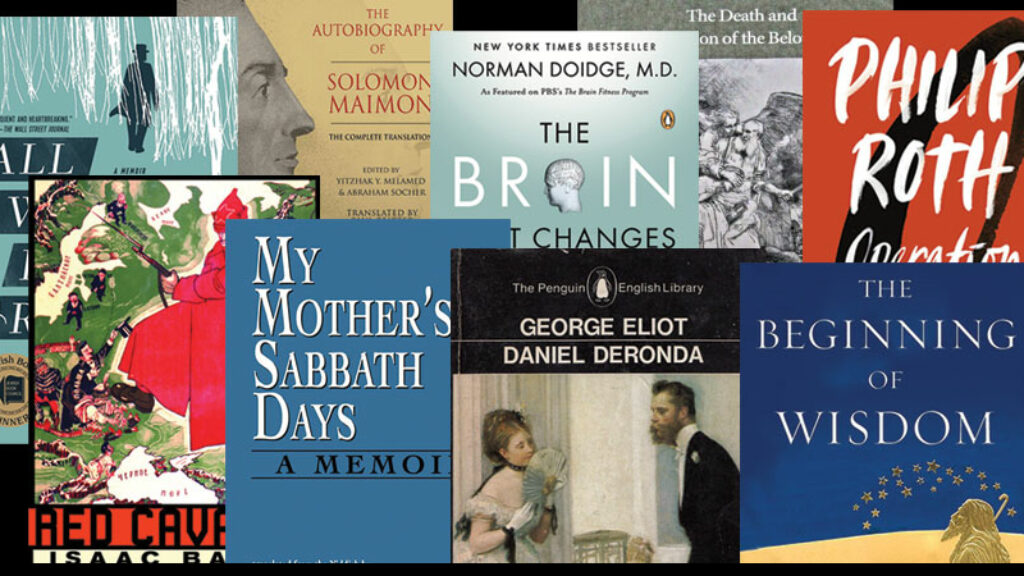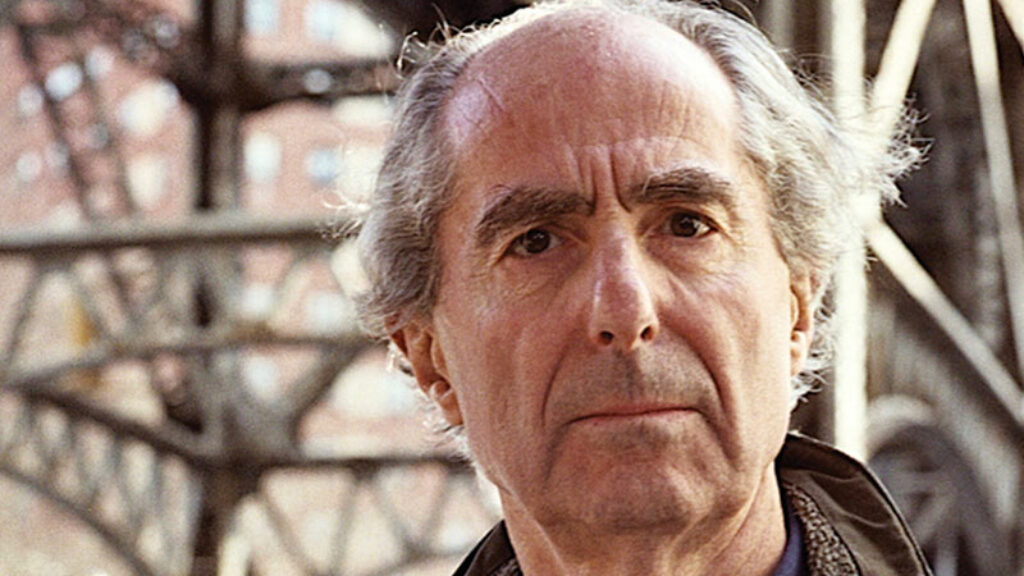Pessimism Not Despair: A Reply to My Critics
I would like to thank Elli Fischer, Gil Troy, Neil Rogachevsky, Emily Amrousi, Mikhael Manekin, Ze’ev Maghen, and Mosheh Lichtenstein for having taken the time and trouble to respond, in a spirit of friendship, to what I wrote. We are engaged not in a debate in which we are out to score points but in a difficult and painful conversation about a country on which we have staked our lives. I won’t therefore try to rebut every point in the responses with which I disagree or where I feel I was misunderstood. I’ll stick to what seems most important, starting with the frame of mind in which my article was written—that is, with what Elli Fischer calls my “doomsaying mode,” Mikhael Manekin my “dark determinism,” and Mosheh Lichtenstein my “pessimism bordering on despair,” and which has led Ze’ev Maghen to appeal to me, “Don’t give up on us.”
Let me say clearly that I haven’t given up on Israel or despaired of it. I can see why I might have made such an impression, as when I wrote, quoting from a letter to a friend in which I compared Israel to a man falling from a cliff, “I don’t know whether this will end with a smash-up and a slow, painful recovery or with something worse.” These are, I admit, grim words. But a doctor who tells a patient, “I can’t promise you’ll pull through and it will be a long fight if you do,” would not be telling him to despair. He would be counseling realism and determination in the face of a grave and possibly, but not necessarily, fatal condition. If what I felt was despair I would not have written my article, because I don’t think anyone has the right in the present situation to needlessly demoralize anyone else.
To tell the truth, if the threat facing Israel were “merely” the possible loss of its democratic institutions, I would be less pessimistic. The liquidation of democracy can have horrendous results, but it is reversible and doesn’t spell the end of nations. Argentina survived its junta, Greece its generals, and Spain quickly caught up with the rest of Europe after thirty years under Franco. Israel is not, in the worst of cases, about to become a dictatorship. Yet even if it did and suffered the awful consequences, its existence as a country, if imperiled by nothing else, would not be threatened.
But there is something else: Israel’s slow but steady absorption, now in its fifth decade and about to be speeded up, of Judea and Samaria, along with the Trojan horse of their Palestinian population. And just as the turmoil aroused by Israel’s new government has overlooked the Palestinian issue while concentrating on a more immediate crisis, so have the responses to my article. Five do not mention the Palestinians at all or do so in a perfunctory word or two. Only two devote any space to them. Ze’ev Maghen gives them a paragraph:
The Israeli-Palestinian conflict shows no signs of abating. . . . But if, God forbid, our enemies remain utterly implacable no matter what overtures or compromises we make—which is a distinct possibility—then I confess I’d rather have a fierce, hawkish Zionist in the cockpit than a progressive, Westernized wimp for whom this land, and the people who have returned to it after two millennia of incomparable suffering, don’t mean all that much.
Emily Amrousi has a page. There she writes:
Halkin thinks that an Israeli presence in the Samarian highlands means losing the state due to demographic reasons. I think that an Israeli retreat from those heights means losing the state primarily for security-related reasons. . . . The novel idea of acting in the eastern part of the land as a sovereign . . . is something we haven’t yet tried. I don’t know if it is possible. But I know what is impossible: to turn over a chunk of land to an enemy who wants to destroy us.
I’ll put aside having written in my article that, far from being against an “Israeli presence” in Judea and Samaria, I have always been for one. What matters is that Amrousi and Maghen, too, offer no explanation of how Israel can indefinitely hold onto these areas, much less formally annex them, without either (a) finalizing the Palestinians’ status as a subjugated people ruled by Jewish overlords, or (b) becoming—as the enlightened world will in any case force it to do once (a) comes to pass—a binational state whose newly enfranchised Palestinian citizens will elect some thirty members of its 120-seat Knesset, and together with the Palestinians of pre-1967 Israel, close to half of it.
Such a state, needless to say, would blow apart, just as happened in Lebanon, whose once Christian majority opted for a Grand Liban with a large Muslim minority rather than for a smaller, more ethnically homogeneous country. Yet such a prospect does not seem to cause Maghen and Amrousi even a touch of anxiety. For both, either (a) or (b) would be preferable to relinquishing land to the Palestinian enemy.
I honestly don’t understand this. Although relinquishing land to an enemy outside the gates is risky, the risk can be fought from within the gates. (So, with a minimum of damage and casualties, the enemy in Gaza has been fought since Israel’s withdrawal from there in 2005.) Permanently domiciling the enemy within the gates is suicidal.
Israel, however democratic it may or may not remain, is on a suicidal course that its new government intends to accelerate. And I would ask Gil Troy, Neil Rogachevsky, Emily Amrousi, Mikhael Manekin, Ze’ev Maghen, and Mosheh Lichtenstein: what should be done about this?
In all fairness, this is a question that I, too, should be required to answer. As I wrote in my article, I have always thought that an Israeli-Palestinian confederation in which Jews lived in the Arab state and Arabs in the Jewish state would be the most reasonable and equitable arrangement. But since this no longer seems possible, and I agree with Maghen and Amrousi that making peace with the Palestinians via a conventional two-state solution is now (and may always have been) a fantasy, the only non-suicidal course left that I can think of is a unilateral Israeli withdrawal to relatively defensible borders within which live as few Palestinians and as many settlers as possible, followed by this limited territory’s annexation and the granting of full citizenship to the Palestinians living in it. (It would include most of the Jordan Valley, thus largely neutralizing the strategic importance of the Samarian highlands to their west) This, too, would be extremely problematic. It would mean evacuating a far larger number of settlers than were made to leave the Gaza Strip in 2005, most or all of whom would resist, and bringing Israel to the brink of civil war or beyond it; and it would meet with international condemnation. It is hard to imagine any foreseeable Israeli government, whether of the Right or of the Left, taking such a step.
Hence my pessimism. Nothing is stronger than the power of inertia—and inertia in this case means ritually repeating b’ezrat hashem and trusting in a Jewish God to come up with a solution that a Jewish state does not bother to look for.
I wish to avoid a discussion of my relationship with Judaism, which is complex and not reducible to a few sentences of the I-do-or-don’t-love-it variety. (Though just for the record, there is much in Judaism that I love and much that I don’t.) I would like, however, to reassure those of my respondents who seem to think I am “anti-religious” that I am not, and that I do not consider observant Jews, as Ze’ev Maghen believes I do, “benighted, barbarous Neanderthals.” I was once, when young, such a Jew myself and I do not recall being barbarous or benighted. If, like many Israelis, I want Israel to be a secular state, this does not mean that I think there is no place in it for Judaism, or that the fewer observant Jews it has, the better. It means that we all, religious and secular Israelis alike, need to recognize the difference between Judaism as a religion and Jewishness as a national identity; to affirm that it is perfectly possible for a Jew without an iota of religious faith to feel and be as Jewish as does the Jew who believes in the God of Israel; and to cleave to secular Zionism’s vision (which was the vision of Herzl, of Nordau, of Ahad Ha’am, of Bialik, of Weizmann, of Ben-Gurion, of Jabotinsky, and of innumerable lesser luminaries in the intellectual and political leadership of the historical Zionist movement) of a state in which Jewishness, not Judaism, is the common denominator, the glue that binds its Jewish citizens together.
I’ll go further. The Jew who feels Jewish by virtue of his Jewishness can say to his Arab neighbor, “On a national level this is a Jewish state, but as an individual you are our equal in every respect and it is our human duty to treat you as such.” The Jew who feels Jewish by virtue of his Judaism must say, “We are God’s chosen. You are not. We will frame our laws and conduct accordingly.”
Yes, I know: one can believe that the God who has chosen one will, as Elli Fischer reminds me, “vomit out” from the Land of Israel whoever does not meet His standards, which include the love of justice and the showing of mercy to the stranger, the orphan, and the widow. If my memory serves me correctly, I once even wrote a newspaper column in which I said that if I were a religious Jew in Israel, I would, for this very reason, worry more about the future than I do as a non-religious Jew. But let’s be candid: this is not what most religious Jews in Israel do worry about or are ever going to worry about. If anyone is going to fight for the rights of the stranger, it is going to be the secular Israeli public. Neil Rogachevsky cites Ben-Gurion on the need for us to be a “special people.” As far as I can see, the feeling of Jewish specialness in Israel is mostly expressed by the assumption that it entitles us to rule over those who are not special.
This is why I wrote to my friend that the problem is Judaism, not Zionism. Zionism came to restore us to the family of nations; Judaism has in it powerful forces that are opposed to this. These are the same forces whose appetite for the land promised us by the Bible will cause us to die of strangulation.
Mikhael Manekin cautions against demographic determinism. I agree that demographic trends cannot with confidence be extrapolated far into the future. The birthrates of the Orthodox and ultra-Orthodox communities may drop, or the rate of defections from their ranks may grow, or other developments that we cannot predict may enter the equation. The future is always full of surprises, and knowing this can be a comfort provided one keeps in mind that the surprises are not always good ones. Yet here, too, as elsewhere, we are trapped in a feedback loop. One reason that the ultra-Orthodox birthrate in Israel remains so unsustainably high (from an economic point of view—it now averages seven children per family) is that effective steps that could be taken by the government to lower it are not being taken—and one reason they are not is that as long as Israel is engaged in a demographic battle with the Palestinians into which Judea and Samaria must be factored, it needs every Jewish baby it can get. Is it demographic determinism to point out that the ultra-Orthodox birthrate and the Israeli-Palestinian conflict nourish each other?
But Mikhael Manekin is surely right when he says that “to build a coalition based on liberal democratic values” the Israeli Center-Left will “need to look for partners outside [its] own dwindling tribe of secular Zionists.” (Dwindling tribe? Who is the demographic determinist now?) And Manekin is right again that these partners will have to include, as he writes, Arabs, secular Jews, traditionalist Jews, “Modern Orthodox [Jews], and yes, individuals and communities among the ultra-Orthodox.” This is, however, as Manekin knows, a long-term project. It can’t be done through protests, strikes, and demonstrations alone; these are important as a show of strength—I find the large turnouts that have been mustered so far against the new government encouraging—but they can’t take the place of long, hard, patient political work. And meanwhile the settlements will grow faster. It’s a little like climate change. There’s still time to avert the worst until there isn’t.
Comments
You must log in to comment Log In
Suggested Reading

A Failure of Reimagination?
We once worried about the faith of young American Jews; now we worry about their politics. It’s part of a long historical development we should resist because Judaism-as-politics isn’t enough.

A Decade of Recommendations
In celebration of our 10th anniversary, we asked 10 of our favorite readers which books they had found themselves recommending the most over the last decade.

Not a Nice Boy
To every author who seemed too cautious—which was nearly every author he knew—Roth gave the same advice. “You are not a nice boy,” he told the British playwright David Hare. His friend Benjamin Taylor’s memoir is . . . nice.
Riding Leviathan: A New Wave of Israeli Genre Fiction
A new batch of Israeli fantasy books may not contain Narnias, but they pound on the wardrobe, rattling the scrolls inside.

Shmuel F
Thank you, Hillel, for your astute response. Your practical view of the Palestinian issue is forceful. But I anticipate it will be dismissed by anyone who does not already understand the self- destructive path Israel is on.
To those critics I ask one question. If you were a 10 year old Arab living in proximity to a settlement, why would you not feel hatred for those neighbors? This is the question we ought to ne asking. How do we send a message yo this child that israel wants a legitimate resolution to his situation ?
Yes, there is no viable partner now. But then it is in our interests to conduct ourselves in a way that makes a future viable partner a possibility. Is there any person who thinks thst the policies of this governmevt are. Going to create an environment where a viable partner can arise? Isn’t it self evident that their aim is the opposite?
The religious parties controlling the levers of power are shaped by those who view the world the way the Zealots did 2100 years ago. And the results are sure to be the same unless sanity returns
Ehud Neor
Why does the 10-year-old feel hatred for settlers? Because against all formal agreements with Israel he is being brainwashed at school with the vilest antisemitism imaginable. The message to him is simple: ask your cousin in Furadis that is next to the Zionist settlement of Zichron Yaakov why he does not hate the Jews. He will point to his university-educated older siblings, doctors, lawyers, teachers, journalists, and the two new cars his parents are driving, while both of them are strolling to the local mosque, and answer: maybe you should like the Jews too and get closer to them. You will definitely be better off than you are now under your Rais.
Harold Males
Democracy in Israel is not dying; you can't kill what is not alive. To whit: Many years ago, I booked my first trip to Israel. The travel agent asked if my passport was current. I replied that I was on my way to the Post Office to apply. I was then told that the process would take about six weeks, while my tour left in a month. No problem -- a call to my Senator's office was made, and I was told that my Passport would be ready in about two weeks. And it was. Constituent service is a wonderful concept, especially in action. In Israel (I finally made aliyah last year) we have Vitamin P. But who needs Protectsia when you have friends in high places, right?
The Knesset provides wonderful theater, especially if you like psychodrama, but I would prefer a governing body with a link (however tenuous) to the voter, rather than a political party with no geographical responsibilities -- not to mention an alternate government masquerading as a legal referee.
George Boguslawski
A great deal of introspection, a large dollop of self-criticism, and to what end? All these words serve little purpose (unless self-flagellation is the point) because the greatest problem for Israel is that she has no partner to engage with in seeking ANY accommodation. It is the Palestinian proclaimed goal to liquidate Israel and take the land "from the river to the sea." The only negotiable point seems to be whether Israel disappears in one year or in ten. In view of this, all else is immaterial, and appealing to the better angels of anti-Israel propagandists is an exercise in futility.
Ehud Neor
That's it in a nutshell, but I offer an answer to your question "to what end?" This type of thinking is the only way we are going to see leftist intellectuals return to a viable middle-liberal path. This is the language they speak. What do I mean by viable? An ideological path that can span generations. What has been accomplished if our offspring yearn to live in Berlin? In addition, when such a writer speaks out, the level of eloquence itself becomes central to the discussion. As in: If we are losing Hillel Halkin maybe we should think again.
Gerald Izenberg
Your response utterly fails to meet Halkin's argument. He starts where you end: Israel has no negotiating partner. The question then is what to do about that: nothing, with the consequences of de facto (or if the right gets its way, de jure) annexation and likely demographic-political disaster, or unilateral withdrawal, with the problem of defending against a possible Gaza to its east. By default you argue for doing nothing without even mentioning the dangers Halkin points to, let alone offering any suggestion about how Israel might deal with them. This is not dialogue; it is wilful blindness.